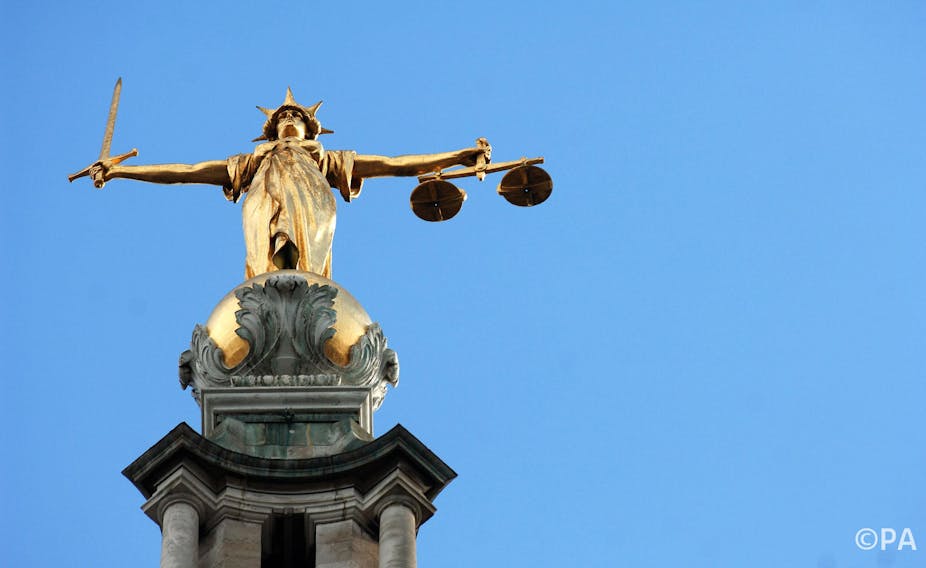Tim Crook and I agree that, ideally, for justice to be done, it must be seen to be done. We also agree that the media should be free to publish within the law and that we are all better off without Levesonian regulation.
We agree on little else.
His argument is that if the trial of two alleged terrorists goes ahead in secret that will be an “assault on free speech and open justice” and “the power of the state is poised to cross the red line between liberal democracy and authoritarianism”.
Sadiq Khan MP, the shadow justice minister (who has had his own brush with MI5 in 2008) thinks the same (he speaks of “undermining the public’s confidence in justice”) as do Shami Chakrabati, libertarian Tories like Dominic Raab, and The Daily Mail, The Telegraph and The Guardian. They are wrong.
For one thing, we know enough about this trial to be sure it is has nothing to do with “free speech” but with allegations of terrorism involving bomb-making.
Whether or not this would be the first time a national security trial is wholly held in camera (should Mr Justice Nicol’s ruling be upheld on appeal) we know that the trial is happening and what it’s about. Indeed the very use of the word “secret” rather than “in camera” is significant. It plays to the ridiculous “power of nightmares” thinking that Britain has become a secret and authoritarian state, spying on everyone on spurious national security grounds.
Actually, English courts have often resorted to in camera trials for at least part of the proceedings when national security has been affected. In this case we know that, in the view of the CPS and Nicol (an expert on media law), unless this trial is held wholly in camera it will have to be abandoned and, if the allegations against them are true, that two very dangerous men will be set free.
A question of safety
There can be no better illustration of the moral and social irresponsibility of the libertarian viewpoint that it is always better that dangerous and guilty people go free than that they should be tried and either found guilty or acquitted in camera.
Here, plainly, there is a conflict between serving the interests of open justice and serving our national security. That justice itself will ultimately be done should not be questioned, even if many years may elapse before this be achieved. No one knows precisely why it is thought this trial should be held wholly in camera. The two most obvious explanations are either that witnesses’ lives would be at risk if they were to testify against these men, or that the secrecy of the methods used by MI5 and the police to win evidence should be maintained.
The media’s line (as put by The Telegraph’s Phil Johnston) is that they themselves should be trusted not to disclose sensitive or dangerous information about MI5’s methods or witnesses. The hard truth, however, is that we cannot trust the media to do the right thing.
Newspapers, apart from all the vital things they do in a free democracy, make money from the news. We’ve repeatedly seen that they are more than happy to be in contempt of court in order to sell stories. Of the many examples, let’s just mention the name of Levi Bellfield, or reflect on the trials that have had to be abandoned because of the media’s contemptuous disregard for legal process.
Even more seriously, The Guardian has demonstrated that to sell papers it is ready to compromise national security. The publication of the Snowden material revealed no wrongdoing by any intelligence agency in the UK (or the USA) merely wrongdoing by Snowden – and The Guardian in publishing secrets kept by people whom we pay to keep us safe. We know their work had been badly damaged as a result. If this case is about free speech it is about our free speech, and keeping us secure from terrorists who want to destroy it.
Government runnung scared
The media may say: “if we have done wrong, then put us on trial”. The big problem with that argument is that, at present, we have a government that is so desperately afraid of the media that it will put national security interests to one side in order to appease them.
The line taken by Downing Street towards The Guardian and David Miranda’s computer (where the paper was allowed to physically destroy the very evidence that could have been used to convict both parties) would be farcical if it were not so serious.
In the post-Snowden environment, our judiciary has been forced (if it upholds the Nicol ruling) to accept that we cannot rely on the media to act in the public interest in a matter of national security. That’s a desperate shame but who’s to blame? Best, of course, to have this trial only partly held in camera.
But as long as we remain a liberal democracy with a free judiciary, the second best is a trial wholly in camera. The worst outcome would be free two alleged terrorists so creating an appalling precedent with catastrophic consequences for the very democracy we need to secure.

